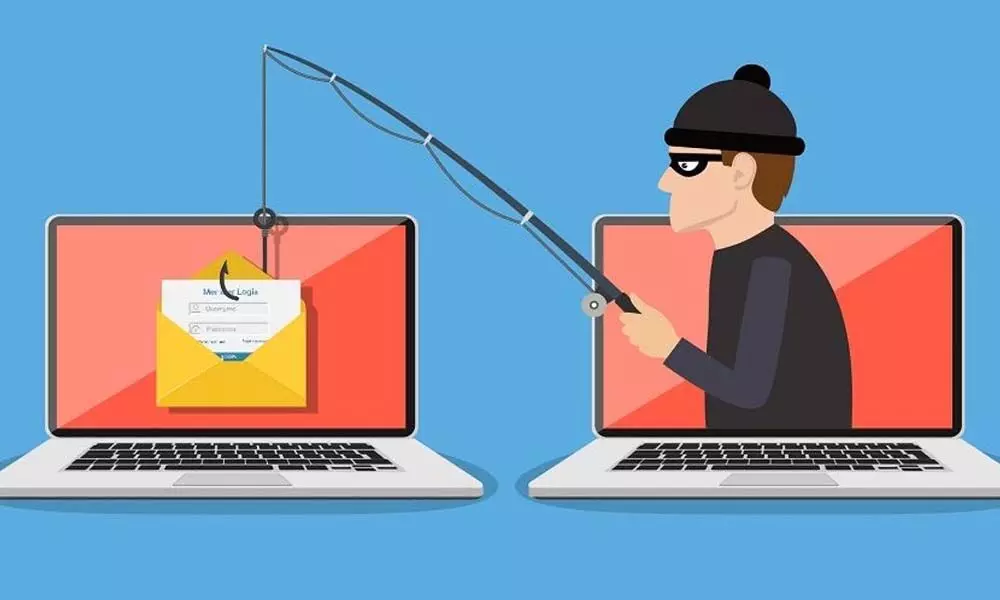Phishing attacks soaring in sync with current trends
There are always unscrupulous people who are up to exploiting vulnerabilities and taking advantage of others’ crisis. Consider, for instance, the challenging times, post break out of the global pandemic.
image for illustrative purpose

There are always unscrupulous people who are up to exploiting vulnerabilities and taking advantage of others' crisis. Consider, for instance, the challenging times, post break out of the global pandemic. Various fake payment offers and discounted Covid-19 tests are among the most common schemes used by cybercriminals during these tough times. A recent study done by researchers at Kaspersky Lab, the leading global cyber security company, reveals some alarming statistics. The issue therefore cannot and should not be ignored or overlooked.
Between March 2020 and July 2021, researchers prevented over a million user attempts to visit these sites. If they have detected and prevented such high number of attacks, one can imagine the total number of attempts and total number of successful attempts that must have caused some damage/ harms or other. Call it the epidemiological challenge or something else, pandemic-related spam emails and phishing pages designed to steal users' credentials are alarmingly on the rise.
Recently, phishing ads for fake QR codes and vaccination certificates for restaurants and public events have become popular not only in India, but all over the world. Going by various research findings, pandemic-related scamming activities had peaked in March 2021. Although there was a marginal drop in June, the next two months including the current month, the number of such attempts has again headed northward. In the current month itself, at least 14 per cent more such attempts (compared to May, the month that witnessed the previous peak) have already been blocked, reflecting a significant rise in the total number of attempted attacks.
In most pandemic-related fraud, cybercriminals aim to obtain user data. Phishing is often used for this: a user follows a link from an ad or email and gets to a page where they are asked to enter personal information and bank card details. Once they have this information, attackers can use it to steal money from a target's accounts. If one sees a message about the pandemic, it is therefore always advisable to double-check whether the information is from an official source and one should never give one's personal data to suspicious sites. There is no harm in being skeptical of any unusually generous offers and promotions. In fact, one should not follow links from suspicious emails, instant messages or social network communications. The use of a reliable security solution that identifies malicious attachments and blocks phishing sites also is a must.
Mind you that the increase in the number of phishing attacks related to covid19 tests and vaccinations clearly shows how cybercriminals are always looking out for opportunities to plan their attacks and are in sync with the current trends that may help them gain greater attention of their potential victims. For cybercriminals, exploiting vulnerabilities through a phishing attack means minimal investment and great profits, which is why phishing attacks are the most common type of attacks targeted at individual internet users.
One must stay away from offers that appear too good to believe. That's the bottom-line.

